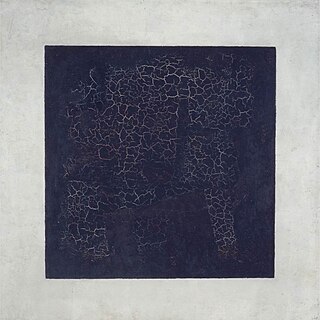László Ungváry | |
|---|---|
 Ungváry in 1961 | |
| Born | 8 December 1911 |
| Died | 21 September 1982 |
| Occupation | Actor |
| Years active | 1935–1982 (film & TV) |
László Ungváry (1911–1982) was a Hungarian film, stage and television actor. [1] [2] [3]
László Ungváry | |
|---|---|
 Ungváry in 1961 | |
| Born | 8 December 1911 |
| Died | 21 September 1982 |
| Occupation | Actor |
| Years active | 1935–1982 (film & TV) |
László Ungváry (1911–1982) was a Hungarian film, stage and television actor. [1] [2] [3]

László Sólyom was a Hungarian politician, lawyer, and librarian who was President of Hungary from 2005 until 2010. Previously he was the first president of the Constitutional Court of Hungary from 1990 to 1998.
The siege of Budapest or battle of Budapest was the 50-day-long encirclement by Soviet and Romanian forces of the Hungarian capital of Budapest, near the end of World War II. Part of the broader Budapest Offensive, the siege began when Budapest, defended by Hungarian and German troops, was encircled on 26 December 1944 by the Red Army and the Romanian Army. During the siege, about 38,000 civilians died through starvation, military action, and mass executions of Jews by the far-right Hungarian nationalist Arrow Cross Party. The city unconditionally surrendered on 13 February 1945. It was a strategic victory for the Allies in their push towards Berlin.

Farkasréti Cemetery or Farkasrét Cemetery is one of the most famous cemeteries in Budapest. It opened in 1894 and is noted for its extensive views of the city.

The Hungary national handball team is administered by the Hungarian Handball Federation.
Bánk Bán is a 1914 silent Austro-Hungarian film directed by Michael Curtiz.

The Novi Sad raid also known as the Raid in southern Bačka, the Novi Sad massacre, the Újvidék massacre, was a massacre carried out by the Királyi Honvédség, the armed forces of Hungary, during World War II, after the Hungarian occupation and annexation of former Yugoslav territories. It resulted in the deaths of 3,000–4,000 civilians in the southern Bačka (Bácska) region.

A Strange Marriage is a 1951 Hungarian historical drama film directed by Márton Keleti and starring Gyula Benkő, Hédi Temessy and Miklós Gábor. It was shot at the Hunnia Studios in Budapest. The film's sets were designed by the art director József Pán. It is based on the novel of the same name by Kálmán Mikszáth. It was entered into the 1951 Cannes Film Festival.

László Fekete is a strongman from Hungary. He was ten times Hungaria's Strongest Man from 1988 to 1997 and 1992 Europe's Strongest Man champion. He participated in the World's Strongest Man finals in 1988, 1989, 1990 and 1999, emerging fifth in 1989 and sixth in 1990.
László Fekete was a Hungarian footballer of the 1970s and 1980s.
Magyar vándor is a 2004 Hungarian action comedy film directed by Gábor Herendi and starring Károly Gesztesi, János Gyuriska and Gyula Bodrogi. The plot contains elements of time travel fiction.
Yesterday is a 1959 Hungarian drama film directed by Márton Keleti. It was entered into the 1st Moscow International Film Festival.

The Hungarian-language surname Fekete literally means “black” and may refer to:
The Corporal and the Others is a 1965 Hungarian comedy film directed by Márton Keleti. The film was chosen to be part of the Budapest Twelve, a list of Hungarian films considered the best in 1968.

Black Diamonds is a 1938 Hungarian drama film directed by Ladislao Vajda and starring Zita Szeleczky, Zoltán Greguss and Valéria Hidvéghy. It is based on an 1870 novel of the same name by Mór Jókai, the title referring to coal. It was remade in 1977.

My Daughter Is Different is a 1937 Hungarian comedy film directed by Ladislao Vajda and starring Klári Tolnay, Imre Ráday and Ida Turay. It was shot at the Hunnia Studios in Budapest. The film's sets were designed by the art director Márton Vincze.

Relatives is a 1954 Hungarian drama film directed by Félix Máriássy and starring László Ungváry, Klári Tolnay and Gábor Rajnay. It was shot at the Hunnia Studios in Budapest. The film's sets were designed by the art director Mátyás Varga. It is based on a novel by Zsigmond Móricz, which was later remade as a 2006 film.

The Football Star is a 1957 Hungarian sports comedy film directed by Márton Keleti and starring Imre Pongracz as the football star, Kamill Feleki, László Ungváry and Manyi Kiss. It features a number of cameos from Ferenc Puskás and other footballers of the Hungarian national Golden Team, who had finished as runners-up at the 1954 World Cup. It was shot at the Hunnia Studios in Budapest. The film's sets were designed by the art director Zoltán Fülöp.

A Quiet Home is a 1958 Hungarian comedy film directed by Frigyes Bán and starring Ferenc Zenthe, Erzsi Galambos and Irén Psota. It was shot at the Hunnia Studios in Budapest. The film's sets were designed by the art director István Básthy. It was one of the most popular Hungarian films of the era, drawing more than three and a half million spectators.

The Moneymaker is a 1964 Hungarian comedy film directed by Frigyes Bán and starring Sándor Pécsi, Itala Békés and Hilda Gobbi. It was shot at the Hunnia Studios in Budapest and on location around Sopron. The film's sets were designed by the art director Lóránt Kézdi.

Black Dawn is a 1943 Hungarian drama film directed by László Kalmár and starring István Nagy, Bea Goll and Margit Lukács. It was shot at the Hunnia Studios in Budapest. The film's sets were designed by the art director Lajos Lévay.